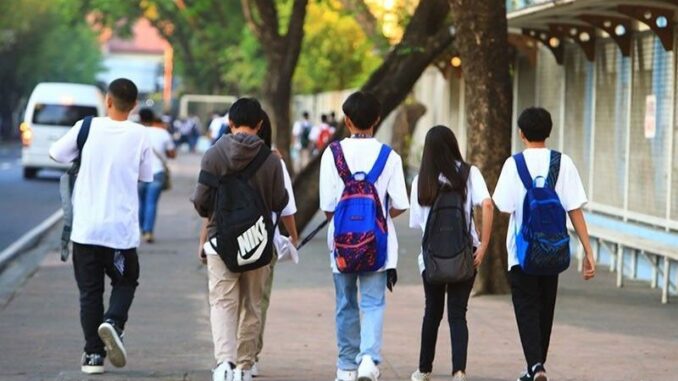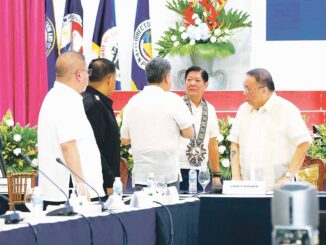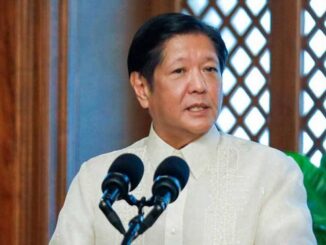
MANILA, Philippines — President Ferdinand Marcos Jr. signed into law on Friday, December 6, a measure that temporarily pauses student loan payments during calamities and disasters to provide relief to affected students and their families.
Republic Act 12077 or the Student Loan Payment Moratorium During Disasters and Emergencies Act aims to make education more accessible by offering financial relief to student borrowers affected by disasters, the president said during the signing ceremony at Malacañang Palace.
“The benevolence of this law allows the disaster-affected students and their families to have a breathing space as they recuperate and rebuild their lives,” Marcos said.
Under the new law, collection of student loan payments will be temporarily deferred during and after disasters without imposing penalties or additional interest charges.
Marcos expressed optimism about the law’s impact on students’ academic pursuits. “It is our hope that this law will help lessen the financial burden off our students’ shoulders as they continue their schooling,” he said.
“The enactment of the Student Loan Payment Moratorium During Disasters and Emergencies Act is in line with the harmonization of our efforts to make education accessible to all our students,” Marcos added.
Marcos directed the Commission on Higher Education (CHED) and Technical Education and Skills Development Authority to provide comprehensive assistance to students and ensure that financial challenges would not hinder them from finishing their studies.
The law’s journey through Congress saw strong support from both chambers. The Senate unanimously passed the measure on third and final reading in March 2023, with then-senator and now-Senate President Chiz Escudero sponsoring the bill on the floor. The House of Representatives followed suit, unanimously passing the final version of the bill in March this year.
While the full text of the law is yet to be released, both the Senate and House versions stipulated that the moratorium would take effect for students residing in areas declared under a state of calamity or emergency.
The Senate and House versions of the measure stated that the payment freeze would remain in effect until 30 days after the lifting of the declaration of a state of calamity in an area.
In 2022, CHED stopped offering its “study now, pay later” loan program because of low payment rates from students, several of whom could not immediately find a job after graduation.
CHED Chairperson Popoy de Vera told Philstar.com in a message that the commission is now working on creating a new student loan program in partnership with government financial institutions.
“We are formulating a new and better one in collaboration with GFIs. The old study now pay later program had very low repayment rate that was criticized as ‘study now pay never,’ that’s why it was stopped,” De Vera said.





Be the first to comment